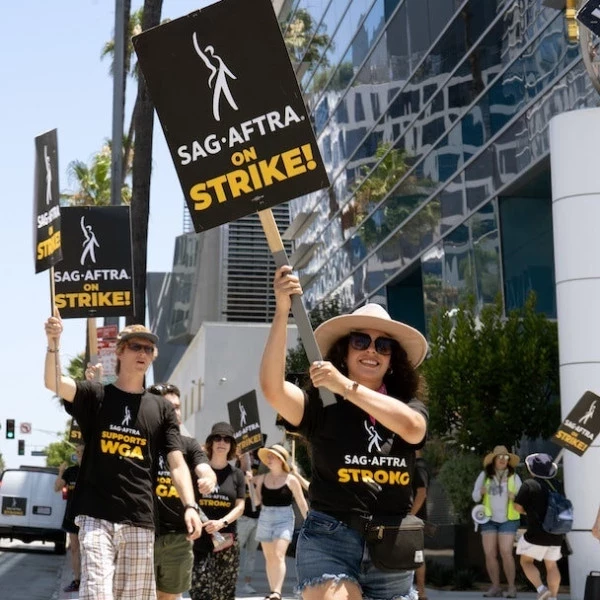Future of Work and Employer Branding
Add bookmarkEmployees and applicants want to align with their employers and vice versa. In fact, employer branding is key to the strategy of attracting and retaining the workers of the future. As part of HR Exchange Live: Future of Work, a session has been dedicated to the topic. Leading the presentation: Chelle O’Keefe, the chief human resources officer for Associa.
As the editor of the HR Exchange Network, I had an opportunity to sit down with O’Keefe and discuss her presentation and the future of work as a whole. My first question pertained to the presentation itself, specifically, an overview of what she’ll discuss and the desired takeaways.
“It’s about establishing your internal and your external brand as a company and that it leads to greater employee retention,” O’Keefe said.
Takeaways include:
- Employees are your best branding tool.
- Think like a marketer.
- How to ensure a common brand experience across the employee lifecycle
Future of Work and Employer Branding
Employees are your best branding tool
Attracting the future worker is a difficult proposition these days. Consider the cost per hire alone. According to LinkedIn, companies with stronger employer brands compared to competitors see, on average, a 43% decrease in the cost per candidate they hire. Why? Companies will benefit from the natural talent attraction traits of an attractive employer brand instead of spending money on advertising and marketing campaigns.
That’s where employees come into the strategy. Companies with a strong brand stand to grow in profitability. Employees who are able to live and breathe a company’s culture to other employees and potential job candidates have real power over the brand. Employee testimonials can be an incredibly strong tool in both the job market and against competitors.
Think like a marketer
In short, it’s important for HR professionals, especially those charged with attracting and retaining employees, develop or attain marketing skills. There is a labor shortage happening at this moment. There are too many jobs and not enough employees. That means everyone is competing for the best talent. In a lot of instances, HR professionals are looking to lure talent from competitor companies. As Mark Schaefer once wrote in the Harvard Business Review, HR should “compete for talent the way companies compete for customers.”
How to ensure a common brand experience across the employee lifecycle
For Associa, O’Keefe says her company takes an inside-out approach to making sure there is a common brand experience for each employee while working as talent in the company’s ranks. In fact, the brand itself is made up of components from each.
Courtesy: Chelle O'Keefe
O’Keefe says this is critical to their overall employer branding strategy.
“It allows you to recruit and retain talent by strengthening your brand,” O’Keefe said.
O’Keefe’s Take on the Future of Work
When thinking about human resources, rarely if ever at all, does the word ‘paradox’ enter one’s mind.
Merriam-Webster Dictionary defines the term as “one (such as a person, situation, or action) having seemingly contradictory qualities or phases.”
For Associa, the future of work is definitely a paradox.
“We’re in an interesting paradox between all of the AI and machine learning and all the things happening from a digital space. Also, with this idea of work being more human at the same time,” O’Keefe said.
O’Keefe says they’re trying to figure out the solution to this question:
“How do you enable both [technology and humans]in the organization so you can get more efficient at the same time you’re creating a more human experience for employees,” O’Keefe said. “It’s almost an opposite. How do those opposites come together?”
O’Keefe feels like the marriage between the two happens through soft skills usage. The problem is, those soft skills are not as developed as they once were. In fact, iCIMS says its research found one in three professionals believe soft skills have declined in the last five years. That points to significant problem in that workers don’t know how to develop relationships well anymore.
And if there is one thing O’Keefe knows for sure, the future of work is going to be more relationship-driven because “those are the things that computers can’t do.”
Now the question becomes how do HR professionals prepare people for that?
“It becomes the company’s responsibility to train millennials and even the new generations on how to actually have relationships and social conversations because they don’t learn it anywhere else,” O’Keefe explained. “So, how do we as older generations demonstrate the behavior that we’re looking for? It means putting down our technology and having actual conversations, being focused and in the moment, and present because those are things they’re not used to or are not learning.
HR Exchange Live: Future of Work
As mentioned previously, O’Keefe is a member of the speaking faculty for HR Exchange Live: Future of Work. Other speakers include:
- Johnny C. Taylor, President and CEO - SHRM
- Luciana Duarte, Vice President of Employee Experience - HP
- Jaclyn Lee, CHRO - Singapore University of Technology and Design
- Luana Matos, CHRO – Nextel Brasil
- Horace Porrás, VP of HR, Latin America – American Tower Corp.
- Dianne Anderson, CEO – Cylient
- Paul Mastrangelo, VP of Sales, North America – CultureIQ
For more information and to register for the free-to-attend online event, click here.




























